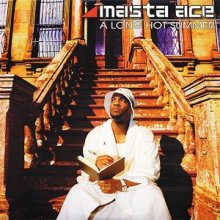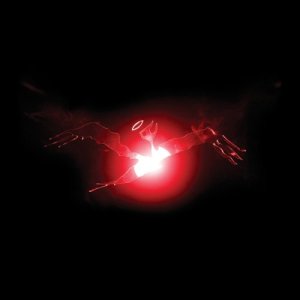From the same label that brought you Atomic Farmhouse. Listen to it here.

It was a nice surprise when I recognized the instrumental of “Super Naturalness,” which was produced by 9th Wonder for a Jean Grae track. The sample of The Marvelettes’ Uptown resonates nicely with GHOST’s verses, who instantaneously gives off an eery similarity to Domo Genesis of Odd Future, at least in terms of his torpid tone, voice, and flow. This track is all about making his infatuation for making music as well as his affinity for pecuniary gain as clear as can be.
Owners of old records won’t be left scratching their heads at the start of “A Speech of 1000 Words.” I was never a huge fan of crackling, unless it’s used to stimulate an era or trigger nostalgia, as it is in this case. The theme, centered around staying true to himself while still blowing up, isn’t exactly one that is unheard of, but the occasional flurry of insightful lyricism more than makes up for it.
In an unusually pivotal transition from the last track, “50/Fifty” introduces itself as a braggadocio-esque, abrasive, and discordant track. Despite this, and it’s undeniable repetitiveness, it’s still pretty catchy and GHOST comes through with some hard-hitting bars.
“Spittin’ lyrical warfare, that’s why I’m in the booth with camo on.”
His far-from-desolate lyricism is put to work on “Ghost Ship,” as he reflects on dreaming without his eyes closed, among other topics. This extends into the next and final track, “SUNRISE.” The song comes in with a Cool Kids feel to it, and sticks with it. I can’t help but feel a little biased when I say it’s undoubtedly my favorite on the 5-track album.
For Super Natural Senses, in addition to bringing the technical aspects into account, I assessed this EP in accordance with the fact that GHOST is a relative neophyte to the game, and is consequently receptive of a number of contrasting styles, so inaccuracies are inevitable, but at the same time is presented with the pre-eminence that is time, for betterment. I have to say though, despite his sophomoric status, the guy does an admirable job of separating himself from the tasteless unoriginality that is becoming the norm for upcoming emcees, while still making music that has the potential to reach today’s casual music enthusiasts. Keep at it, and to those reading, keep an eye out for GHOST MC in the time to come.
Overall: 68/100
 His second full-length, The Rose Tint, a release through Duck Down records, does a good job of showcasing just how he plans to do so. Raw, resolute, yet unruffled lyricism, comparable to that of
His second full-length, The Rose Tint, a release through Duck Down records, does a good job of showcasing just how he plans to do so. Raw, resolute, yet unruffled lyricism, comparable to that of  In conclusion, The Rose Tint consists of well-written verses, memorable choruses, and is gift-wrapped and readied by David Dallas’ unswerving flow. David possesses a certain steadfastness for his music, and this is audibly recognizable throughout the album. So, the question it ultimately all comes down to… Worth a spin? My answer would be yes.
In conclusion, The Rose Tint consists of well-written verses, memorable choruses, and is gift-wrapped and readied by David Dallas’ unswerving flow. David possesses a certain steadfastness for his music, and this is audibly recognizable throughout the album. So, the question it ultimately all comes down to… Worth a spin? My answer would be yes. If you haven’t yet familiarized yourself with the Seattle scene, Sabzi’s latest digital release, PARTHENIA, will provide an adequate introduction, at least to the instrumental aspect.
If you haven’t yet familiarized yourself with the Seattle scene, Sabzi’s latest digital release, PARTHENIA, will provide an adequate introduction, at least to the instrumental aspect.  Steve Wilkinson’s 2009 release, Ambivalence Avenue, is his first with the reputable Warp Records. With this comes slight alteration of his music, abandoning his previous style, which may have been considered tedious by some, and taking a new, experimental approach. With no lack of articulating ability, he ventures through a number of genres and generations of music, creating something unconventional and unexpected in a deeply digitally woven, yet nostalgia-spawning way.
Steve Wilkinson’s 2009 release, Ambivalence Avenue, is his first with the reputable Warp Records. With this comes slight alteration of his music, abandoning his previous style, which may have been considered tedious by some, and taking a new, experimental approach. With no lack of articulating ability, he ventures through a number of genres and generations of music, creating something unconventional and unexpected in a deeply digitally woven, yet nostalgia-spawning way.


 A Long Hot Summer is, in my opinion, a masterpiece, and Ace’s best release to date. The concept album took many by surprise because of a line from “No Regrets” off of Disposable Arts, leading many to believe it would be his last album.
A Long Hot Summer is, in my opinion, a masterpiece, and Ace’s best release to date. The concept album took many by surprise because of a line from “No Regrets” off of Disposable Arts, leading many to believe it would be his last album. 

 Typical Cats is the self-titled debut, from the group Typical Cats. The group’s member s are Qwazaar,Denizen Kane, DJ Natural, Kid Knish and of course, Qwel. All of which, come from Chicago, Illinois. Dubbed ‘Chicago’s best kept secret’ by HipHopDX.
Typical Cats is the self-titled debut, from the group Typical Cats. The group’s member s are Qwazaar,Denizen Kane, DJ Natural, Kid Knish and of course, Qwel. All of which, come from Chicago, Illinois. Dubbed ‘Chicago’s best kept secret’ by HipHopDX.